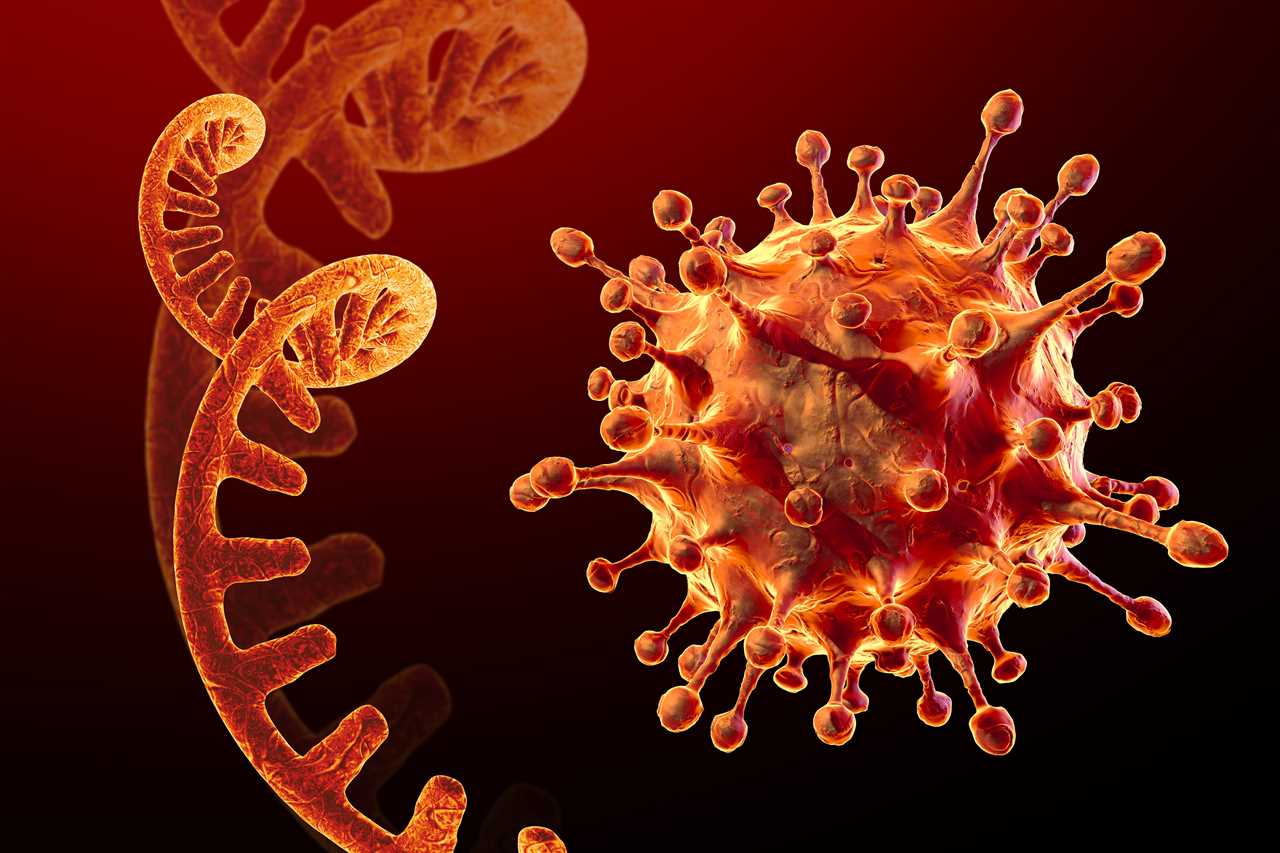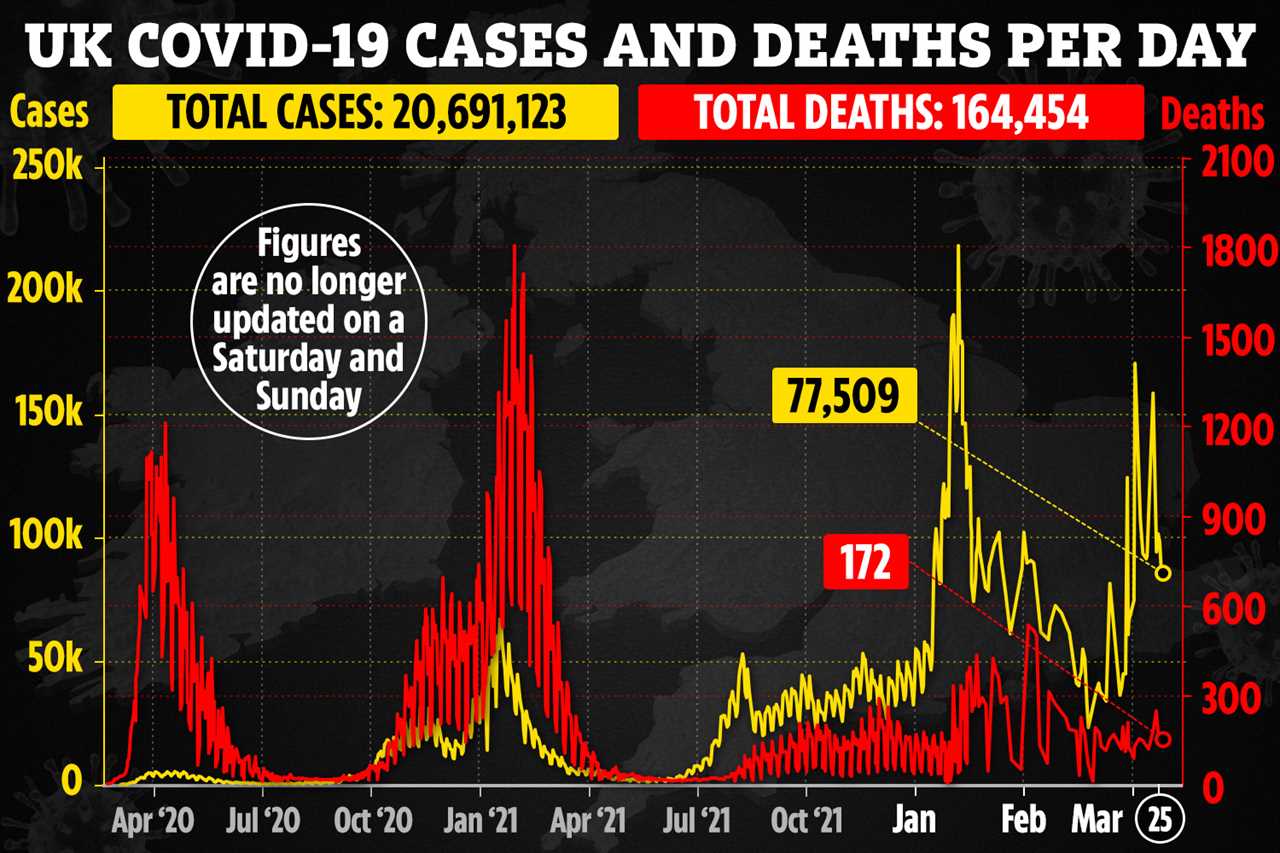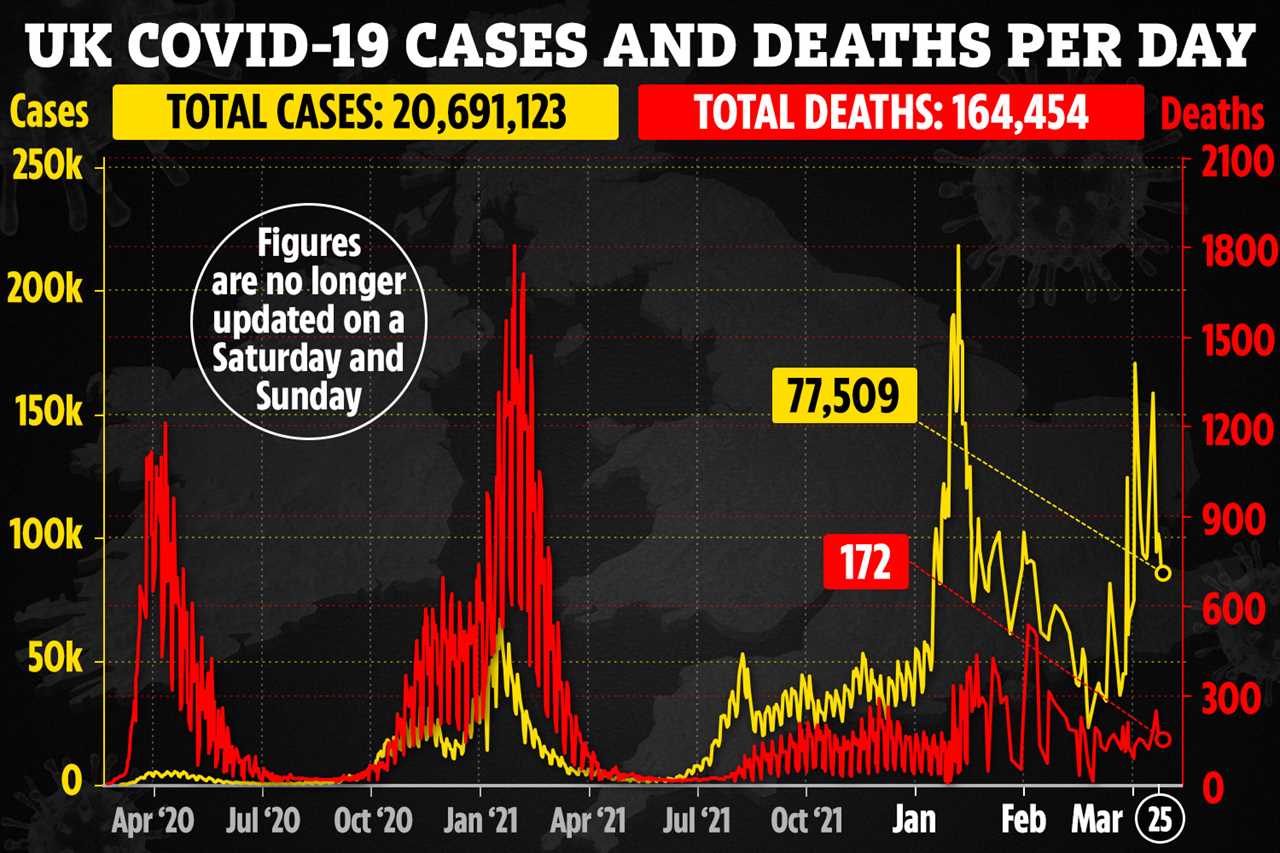MORE than 600 cases of a new Covid variant that combines two Omicron strains have been found in the UK.
Called “XE”, it may spread 10 per cent faster than the current strain but scientists said they are still studying it.

There is no evidence XE is any more serious in disease severity, and Omicon variants have shown so far to be milder.
Booster vaccines are the best way to protect against Omicron, and the most vulnerable of society are being encouraged to get their second booster this spring.
Currently BA.2 is dominant in the UK and is fuelling a Covid surge. Around one in 16 Brits are currently infected with Covid.
BA.2 has a 75 per cent higher growth rate than other Omicron strains, including that which caused a huge wave over Christmas and New Year.
Read more on coronavirus
Growth rate is a measurement that reflects how quickly the numbers of infections are changing day by day.
But the new strain is a combination of the two, and the UK Health and Security Agency (UKHSA) believe it is spreading even faster than BA.2.
XE is known as a recombinant variant, which is when the genetics of two strains jumble together to create a new version.
Professor Susan Hopkins, Chief Medical Advisor, UKHSA said recombinant variants are not unusual, particularly when there are several variants in circulation.
“As with other kinds of variant, most will die off relatively quickly,” she said.
“This particular recombinant, XE, has shown a variable growth rate and we cannot yet confirm whether it has a true growth advantage.
“So far there is not enough evidence to draw conclusions about transmissibility, severity or vaccine effectiveness.”
A UKHSA report said: “XE shows evidence of community transmission within England, although it is currently less than one per cent of total sequenced cases.”
It said XE has a 9.8 per cent growth rate above that of BA.2, and some 637 cases of XE have been spotted in the UK since January 19.
Israel warned of the XE strain earlier in March, saying it had found two cases there.
The World Health Organisation (WHO) warned at the time against European countries underestimating the dangers posed by the mixed strain, the Hindustan Times reported.
There are two other recombinant strains causing concern, called XF and XD.
XF mixes the UK Delta strain and original Omicron, and is nicknamed “Deltacron”.
A small number of cases (38) have been found in the UK, but it has not been detected since mid-February, UKHSA said.
Meanwhile, XD has popped up in several European countries, causing several hundreds of infections, but at this stage has not been seen in the UK.
It has the “backbone” of France’s Delta, with the addition of Omicron mutations.
How worried should we be?
Tom Peacock, an Imperial College of London virologist, gave his thoughts on the triple-threat of the X variants being picked up globally.
In a Twitter thread, he wrote: “How concerned should we be about these (and other) recombinants?
“Recombinants that contain the Spike and structural proteins from a single virus (like XE or XF) are fairly likely to act similarly to thier parental virus [sic]…
“XD is maybe a little more concerning… It has been found in Germany, Netherlands and Denmark and it contains the structural proteins from Delta.
“If *any* of these recombinants were to act much differently than its parent it might be XD…”
Dr Peacock said the coronavirus has been evolving and creating recombinants throughout the pandemic.
However, they are becoming easier to spot.
He added: “The other reason we are seeing a lot now is because when BA.1 took off (at least in Europe and the USA) there was very high levels of Delta already circulating – therefore lots of opportunities to co-infect, recombine and transmit onwards.”
Prof Hopskin said the UKHSA will continue to monitor the situation closely.
State of outbreak
Covid infections have risen sharply across most of the UK, with Scotland and Wales seeing new record highs.
Across the UK, 4.26 million people were likely to have had Covid in the week to March 19, according to Office for National Statistics’ calculations.
It’s not far off the 4.3 million in the first week of 2022, which was the highest total since estimates began.
Around one in 16 people in private households in England had the virus.
But in Scotland it is as high as one in 11, and in Wales one in 16 – both record highs for the nations.
Northern Ireland is the only nation where infections are believed to be falling, with levels standing at one in 17, having dropped for two weeks in a row.
The ONS infection survey is the most reliable measure of the prevalence of Covid in the UK, with the Government now restricting testing to the public.
ONS swabs thousands of random households, then estimates the percentage of Brits likely to have Covid based on the results.
James Naismith, professor of structural biology at Oxford University, warned the latest ONS figures showed there is “no sign yet” that the virus has peaked.
He said: “This wave will burn out simply by infecting all those who can be infected.”
Experts have been concerned for the older populations – who are being invited to get another booster jab.
A total of 16,975 people were in hospital with Covid in the UK on March 23 – up 18 per cent on the previous week.
Read More on Trending In The News
It’s the most Covid patients since January 24, but nowhere near peak levels in the first and second waves.
And 55 per cent of hospital patients are in there “with” Covid, as opposed to “for” Covid, suggesting many caught it while in hospital for another reason.










